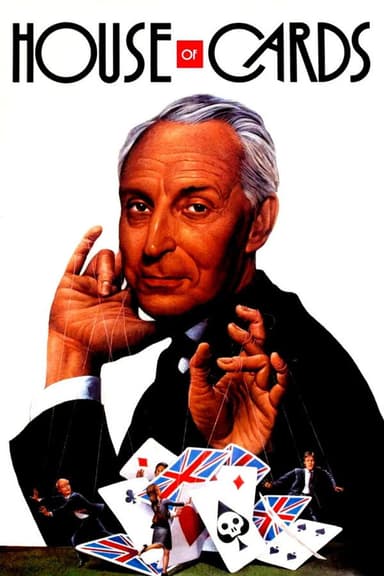
Buddenbrooks
1979 • Drama
Family saga set in 19th century Germany, chronicling the lives of three generations of the Buddenbrook family, the owners of a family business in the northern town of Luebeck. Based on the novel by Thomas Mann.
Why you should read the novel
Reading Thomas Mann’s Buddenbrooks offers an immersive journey into the inner workings of a 19th-century merchant family, blending historical detail with psychological depth that no screen adaptation can fully recreate. The novel provides rich insights into its characters’ motivations and the subtle complexities of their relationships, allowing readers to understand the slow unraveling of a family dynasty from within. Mann’s lyrical prose and incisive social commentary create an atmosphere and an intellectual engagement that inspires contemplation long after the final page, making the original literary work a timeless experience.
Additionally, Buddenbrooks the novel unfolds at a deliberate pace, encouraging readers to savor the gradual changes in fortunes and personalities. This approach gives greater weight to the generational shifts and the ways societal pressures transform the Buddenbrook family, inviting readers to consider broader themes of tradition, success, and inevitable decline. Mann’s intricate storytelling rewards attentive reading, as the narrative symmetry and recurring motifs emerge more fully than they ever could within the constrained runtime of a television adaptation.
Above all, reading Buddenbrooks connects you directly to the artistry of one of the twentieth century’s greatest authors. Thomas Mann’s command of language, nuance, and cultural observation is unparalleled in adaptation. By choosing to engage with the novel, you experience its philosophical resonances and emotional subtleties in their purest form, making it an enduring classic that transcends its adaptation.
Adaptation differences
One major difference between the 1979 Buddenbrooks TV series and Thomas Mann's novel lies in the narrative depth and internal perspective. The novel is renowned for its introspective nature, delving into the thoughts, anxieties, and moral dilemmas of each major character. The series, constrained by screen time and the need for visual storytelling, frequently limits or simplifies these internal experiences, sometimes reducing complex psychological development to external actions and dialogue.
Another significant divergence is the treatment of time. The novel spans several decades, carefully charting the rise and fall of the family across generations with deliberate shifts in tempo, reflection, and retrospective commentary. The TV adaptation tends to compress or reorder events for dramatic pacing, occasionally omitting entire subplots or minor characters to focus on the most visually compelling moments, which alters the intricacies of the family saga.
Furthermore, the adaptation may change or streamline certain relationships and conflicts for brevity and clarity, sometimes blending or omitting nuanced interpersonal dynamics present in the book. For example, subtle tensions or long-term developments in character arcs may be reduced to more overt confrontations or abbreviated scenes, sacrificing the depth that the novel achieves over hundreds of pages.
Finally, the tone and philosophical musings characteristic of Mann's writing—his reflections on art, commerce, religion, and societal change—are sometimes lost or diluted in the series. While the TV version offers period-accurate visuals and performances, it cannot fully replicate the rich, contemplative voice present in Mann’s narrative, resulting in a version that, while faithful in outline, differs significantly in spirit and intellectual complexity.
Buddenbrooks inspired from
Buddenbrooks
by Thomas Mann





